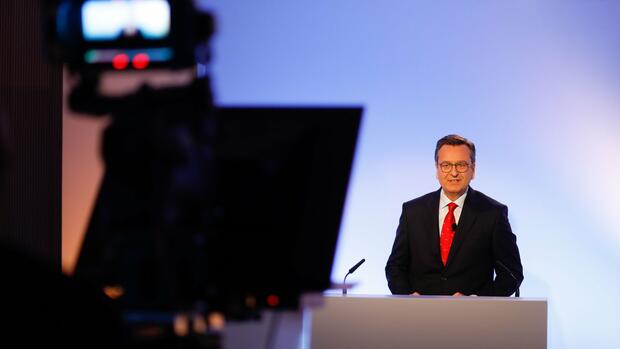The Group continues to focus heavily on the natural catastrophe insurance business.
(Photo: Munich Re)
Munich Munich Re started the year with a surprisingly high profit. In the months from January to March, the world’s largest reinsurer achieved a net result of 1.3 percent. The Dax group announced this on Friday afternoon.
The consensus estimate from eleven analyst opinions was significantly lower at 1.01 billion euros. The share then reacted with half a percent to 338.40 euros. The price is only a little away from its 52-week high of EUR 339.50.
The good development in the first three months was evident across all business areas. In the largest segment, property/casualty reinsurance, the group has not yet reported an exact profit.
However, despite high losses caused by natural catastrophes, the combined ratio was 86.5 percent and thus very close to the planned figure of 86 percent. The severe earthquake in Syria and Turkey was the worst natural disaster in the world in the first three months of the current year.
Profits in life and health reinsurance were higher than expected at around 300 million euros. In the annual forecast of one billion euros, the segment is thus above plan.
Exact numbers on May 17th
The same applies to the primary insurer Ergo. In the first three months, he made a profit of around 200 million euros. In relation to the expected EUR 700 million for the year as a whole, it also exceeds planning by a quarter. For the year as a whole, the group continues to expect net earnings of four billion euros.
“With the result of the first quarter, the probability of exceeding this result has increased,” it said in a statement. The group wants to give exact figures for the first quarter on May 17th.
>> Also read: Difficult treaty renewals: Why Munich Re is benefiting from the current environment
There was already a first indication of a very good first quarter on Thursday. The wording of the speech that CEO Joachim Wenning will hold at the annual general meeting next Friday was already available on the company’s website.
Wenning also commented on the important rounds of contract renewals since the beginning of the year. Accordingly, there was a rate increase of 2.3 percent in the January round. The renewal round in April, which tends to be smaller than at the beginning of the year, went very well, can be read there.
“High risk appetite”
Munich Re continues to focus heavily on the natural catastrophe insurance business. “Where competitors had to give up feathers, our appetite for risk and our capacity offer remains high,” Wenning’s speech manuscript reads verbatim.
Globally, insurers had to bear insured losses of more than 100 billion euros due to natural catastrophes in the past year. It was the second time in a row, which is why Wenning assumes that this value will become the new normal in times of climate change.
The hurricane in Florida was by far the most expensive single catastrophe in the past year.
(Photo: IMAGO/USA TODAY Network)
Hurricane Ian – by far the most expensive single catastrophe last year – cost Munich Re 1.6 billion euros – the burden was thus higher than that of the competition.
Nonetheless, Wenning continues to see significantly more opportunities than risks in natural catastrophe protection. He admits that the market damage trend is increasing. Nevertheless, the natural catastrophe division has been one of the most profitable divisions in the company for years. Average damage over the past five years corresponds exactly to expectations. “We have the business under control,” says Wenning’s speech manuscript.
More: Younger, more female and more international: major restructuring of the Executive Board at Munich Re
